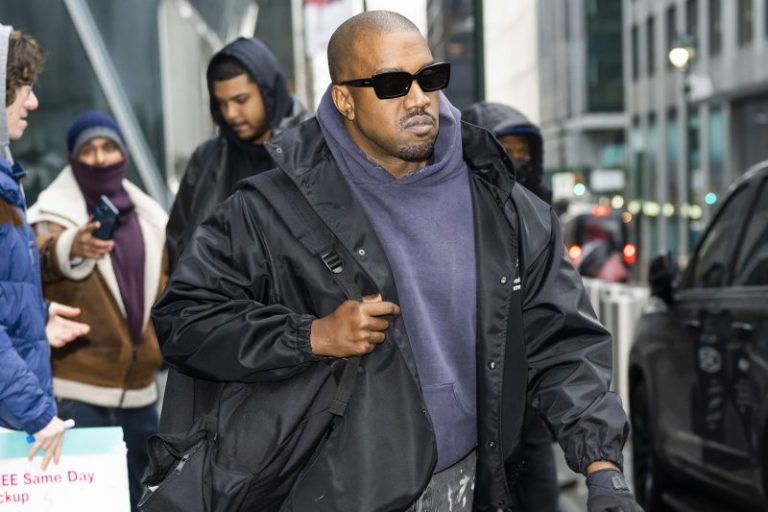Adidas’ shutting down its partnership with Kanye West is just the latest shoe to drop surrounding the artist’s recent run of controversial public behavior.
The rapper, who goes by Ye, and his attacks against Jewish people set forth an avalanche of criticism. Many of his other business partners, including Gap and his talent agency CAA, have also cut him off.
But for Adidas, this was no ordinary deal. The company has said it expects to take a loss of €250 million (about $252 million U.S.) before the year is over as a result of the breakup and the ‘high seasonality’ of the fourth quarter.
On Tuesday, company shares fell about 3% after its announcement. Analysts at Credit Suisse estimated that the apparel deal with Ye brought in $697 million a year for Adidas, and they had forecast a hit of as much as 23% to Adidas’ total annual earnings from turbulence associated with the Yeezy brand before the company officially announced the end of the relationship Tuesday.
To Adidas, the reputational cost of maintaining ties with Ye ultimately outweighed those considerations, said Neil Saunders, managing director at the GlobalData Retail research group and consultancy.
‘Those who side with Kanye’s views are a small minority — they’re quite outside of mainstream,’ Saunders said. ‘That made it easy for Adidas. They weren’t going to sell as many shoes because people would boycott the brand and say they don’t want to be associated with it. So the decision has been made for them.’
Ye could not be reached for comment. In an email, an Adidas spokesman said that ‘it was a thorough review that resulted in the company terminating the partnership with Ye immediately. Adidas will stop the Adidas Yeezy business with immediate effect.’
What’s next?
How does a large company like Adidas unwind itself from such a high-profile deal?
In an arrangement with a celebrity like Ye, a company will typically include non-disparagement and morality clauses in the contract, according to attorney Jared Goldstein, co-author of the book ‘Sneaker Law.’
Goldstein cited the example of Tiger Woods, who lost a number of sponsorship deals through 2009 in the wake of his infidelity scandal, as an example of the kinds of arrangements that see corporate sponsors ditch a celebrity endorser using morality clauses.
Goldstein said those provisions likely gave Adidas ample opportunity to pull away from the rapper, even before his latest antisemitic remarks, noting that Ye had already insulted Adidas executives and its board. Adidas officially put the relationship ‘under review’ earlier this month, but Goldstein said there were no signs it would lead to anything.
Instead, it was likely the growing threat of an international boycott that pushed Adidas to sever ties, said Kenneth Anand, Goldstein’s co-author of ‘Sneaker Law.’
‘That could have been a disaster for the brand,’ Anand said, suggesting that some observers ‘were picking up on the fact that Adidas has a checkered past in its background as a German company — it could have brought more history to light.’
Anand was referring to the fact that the Adidas founder had ties to the Nazi Party, including supplying athletic shoes to German athletes in the 1936 Olympics orchestrated by Adolf Hitler and converting shoe factories to munitions armories during World War II.
‘So they had to act very fast to sever ties given what had transpired,’ Anand said of Adidas.
The apparel giant was also facing pressures internally. A viral LinkedIn post by Adidas trade marketing director Sarah Camhi took the company to task for staying silent about its ongoing relationship with Ye.
“We have dropped Adidas athletes for using steroids and being difficult to work with but are unwilling to denounce hate speech, the perpetuation of dangerous stereotypes and blatant racism by one of our top brand partners,” Camhi wrote. “Until Adidas takes a stand, I will not stand with Adidas.”
Ye could sue in search of monetary damages, Anand said, adding that Adidas likely maintains intellectual property ownership of the shoe designs linked to Ye’s brand. That means it could continue to sell popular products ostensibly designed by Ye even if they are stripped of the Yeezy label.
“They may be able to profit off of that for a long time,” Anand said.

